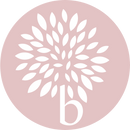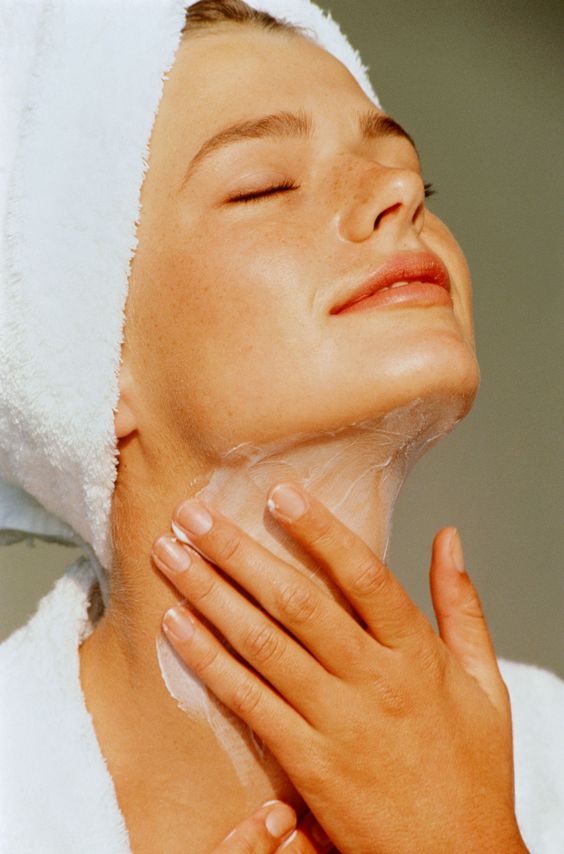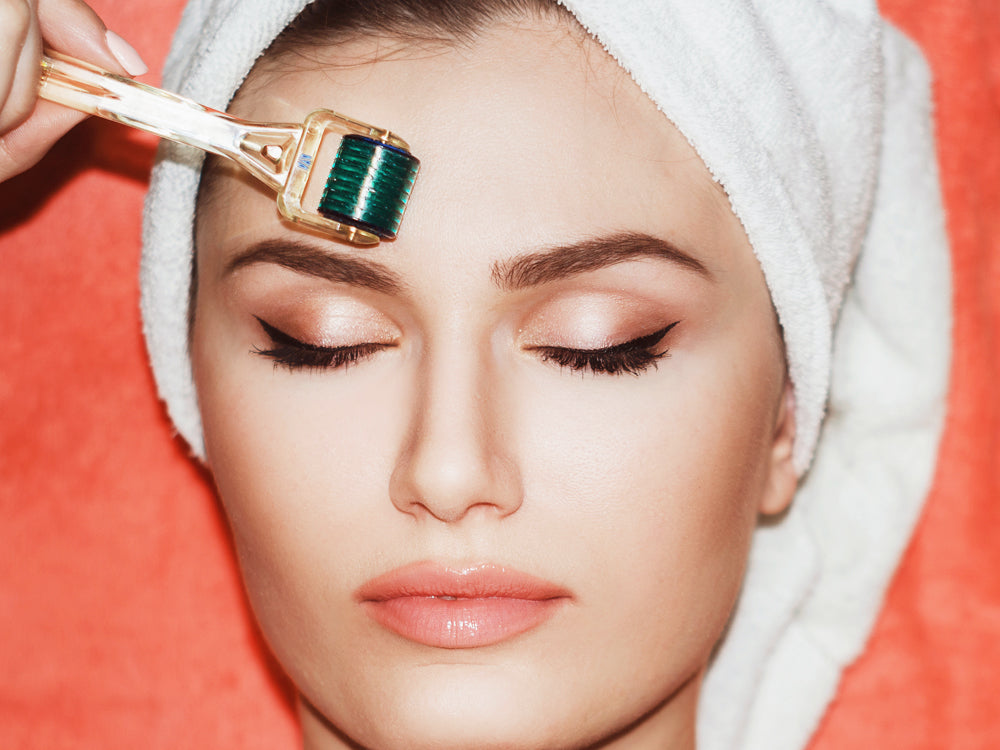What is Glycolic Acid?
Glycolic acid is an alpha-hydroxy acid derived from sugar cane. Alpha-hydroxy acids (also known as AHA’S) typically remove the top layers of dead skin cells.
Glycolic acid is the simplest in structure and unique because of its lowest molecular weight. The small molecular weight helps glycolic acid to penetrate the skin and be super effective.
Glycolic acid is an excellent acne-fighting acid and can help with frequent breakouts and several other skincare problems.
There's is much to learn about glycolic acid, including how to use it and what it does for your skin. Keep reading to find out more.
How Glycolic Acid Works?
Glycolic acid is small enough to penetrate deeper into the skin layers to do some serious work. It stimulates fibroblasts in the dermis layer of skin to produce increased collagen, which helps keep skin firm and minimises fine lines and wrinkles. Collagen is the protein that makes the skin firm, plump, and elastic. (Collagen also gives strength to the bones and connective tissues.)
As we age, collagen production naturally slows down. It's also destroyed by excessive sun exposure or other environmental harm. Applying a glycolic acid cream, a glycolic acid serum and using glycolic acid regularly can help prevent the breakdown of collagen and improve skin health.
The simple action of glycolic acid on the stratum corneum (an upper layer of skin) and the work below makes the skin smoother and look more radiant and even-toned. Normal, intact stratum corneum consists of tightly packed layers of dead skin cells tightly bonded together. Glycolic acid loosens these bonds between the outer layer of skin cells, including dead skin cells and the next skin cell layer. It creates a peeling effect that makes the skin appear smoother and more even.
What Are The Glycolic Acid Benefits For The Skin?
Glycolic acid is a prevalent treatment because of some fantastic benefits it has for the skin. It has effective skin-regeneration properties, which can help smooth fine wrinkles and improve the skin's tone and texture. Glycolic acid plumps the skin and helps raise hydration levels, so it is often used in anti-ageing products.

Glycolic Acid for Hyperpigmentation
Glycolic acid is not just an anti-ageing treatment; it can also help fight sun damage and fade minor hyperpigmentation.
As it is an effective exfoliator, using glycolic acid regularly can help brighten the complexion. It helps shed dead skin cells and unveil the newer, brighter layers below by acting on the outermost layer of skin.
Glycolic Acid for Acne
Many acne treatment products contain glycolic acid because it has a peeling effect. Glycolic acid for pores can help keep pores clean from clogging, preventing blackheads and inflamed breakouts from forming. With less blockage of pores, the skin is clear, and you usually have fewer breakouts.
ResearchTrusted Source findings show that glycolic acid has antibacterial and antioxidant activity, which help improve skin's appearance when you have acne.
The exfoliating property also makes it effective in the prevention of ingrown hairs. If you have a skin structure with large pores, glycolic acid can help to reduce the pore size.
Glycolic Acid vs. Salicylic Acid
Glycolic acid can act on the outer skin barrier; it helps retain moisture instead of drying it out. This is advantageous for acne-prone or dry skin people because many other topical anti-acne agents, like salicylic acid and benzoyl peroxide, cause dryness.
Glycolic Acid and Scar Removal
Although many sources claim that glycolic acid helps to get rid of scars; glycolic acid typically lightens dark discolouration left by acne or wounds. It can also soften the look of raised scars and pitted scars, but it will not make them disappear completely.
For a more efficient treatment of scars, the best would be a professional strength glycolic acid peels or the consultation of a dermatologists for a tailored scar treatment such as microneedling.
Glycolic Acid vs. Lactic Acid
Although offering similar benefits, lactic acid has a larger molecule size and does not penetrate the skin as deeply. People with sensitive skin will find lactic acid to be the gentler acid between two. Here at Beautifully Nourished we use mild doses of glycolic acid, alongside lactic acid so that our formulas remain sensitive skin friendly to even the most sensitive of skin.
Choosing the Right Glycolic Acid Treatment
The choice of glycolic acid treatment depends a lot on the skin type and what you want to achieve. If you want brighter, healthier-looking skin, yet have sensitive skin, using lower concentrations of glycolic acid over more extended periods creates a collective effect, leaving your skin looking compounded - better day by day.
On the other hand, a professional peel can be a good option for treating more intensive skin problems such as severe sun damage. The peels deliver a higher percentage of glycolic acid than other daily use products; they can be more irritating and have a greater risk of side effects on your skin.
Along with the percentage of glycolic acid, the product's pH is the other factor when choosing a treatment for yourself. A more acidic product will give a more robust and more effective treatment than a less acidic product, despite a low percentage of glycolic acid.
So, a product with a low percentage of glycolic acid but with a lower pH will be more effective than a high percentage of glycolic acid but low acidity product.
Glycolic Acid, Morning or Night? When and to use Glycolic Acid
The question “when to use glycolic acid in routine” is often asked.
It is better to use glycolic acid skin care at night. During the day, it can make your skin sensitive to the sun. Glycolic acid night serums can do just the job.
Apply our Vitamin ACE Facial Serum before bed, just before sealing the serum with our luxurious Skin Rejuivinating Night Cream. Our glycolic acid from AHA fruit acid will moisturise, smoothe, soften and encourage cell renewal whilst you sleep.
Skin cell turnover is at its most excellent pace at night, so applying glycolic acid before bed improves the natural process at night. Make sure to use sunscreen in the morning because glycolic acid can increase the risk of sunburn.
Test a patch behind the ear or on the inner arm first to see how your skin reacts to the particular glycolic acid product you have chosen.
Recommended Beauty Products Featuring Glycolic Acid in Skincare
Glycolic acid in skincare can lead to profound resutls.
Glycolic Acid Serum: Beautifully Nourished's Vitamin ACE Serum is perfect for using glycolic acid on the face. The blend combines glycolic acid and vitamin C, glycolic acid and hyaluronic acid and other ingredients such as carrot infusion that synergistically work with glycolic acid in a way that is beautifully good for the skin.
Hydrating aloe vera will cool and calm the skin, whilst the AHA fruit acid gets to work. Beautifully Nourished's glycolic acid skin care are always sensitive skin friendly.
Glycolic Acid Moisturiser: Our vitamin ACE Moisturiser can be applied in conjunction with our Viatmin ACE Facial serum. The combination of glycolic acid and vitamin c creates bright, dewy and beautifully nourished skin.
Key Take Away
In summary, is Glycolic Acid good for the skin? Yes, glycolic acid is good for skin. Glycolic acid is a multitasking skincare ingredient that can help fight acne and improve your skin's appearance. Due to concerns about irritation, it's best to talk to a dermatologist (or us) before you start using it on your own in high strength variants.
Starting with more moderate percentage formulations such as Beautifully Nourished’s gentle skincare formulations can help your skin balance and reduce irritation risks over time. Like any other exfoliant, it's recommended to start small if you have sensitive skin prone to irritation. Sensitive skin is always in safe hands with Beautifully Nourished.



